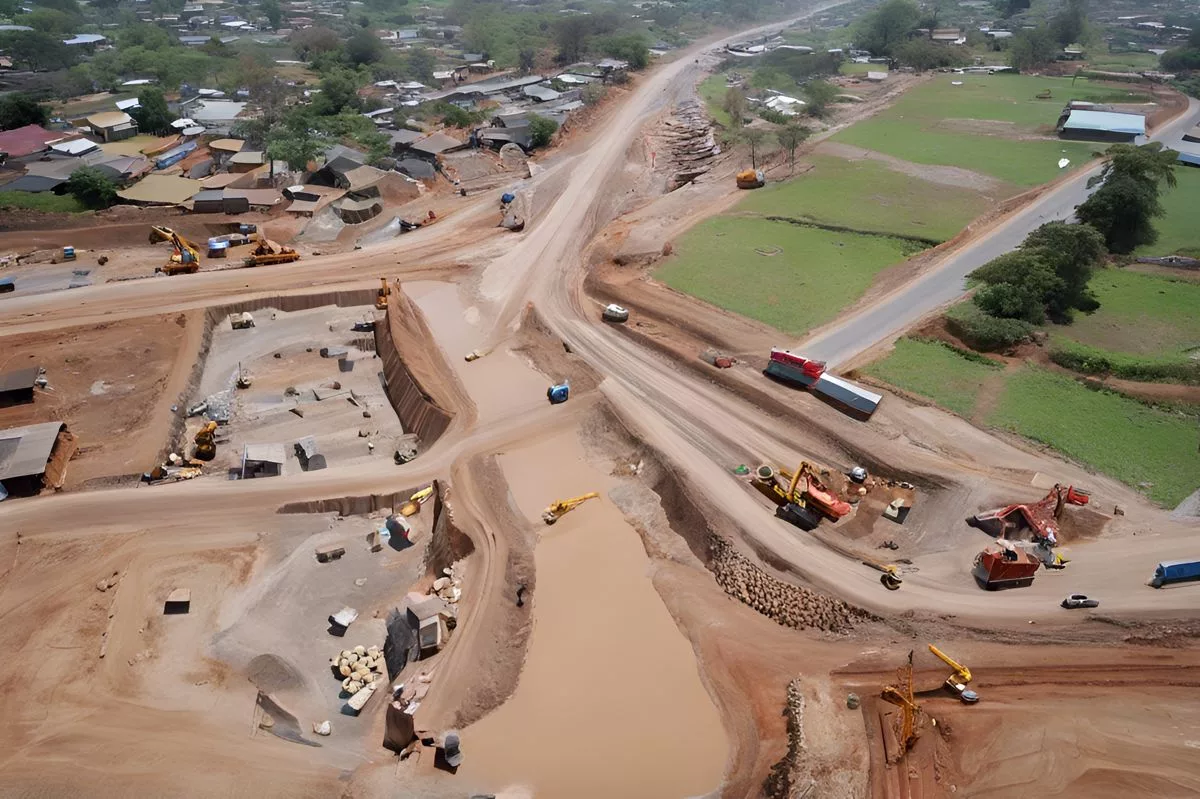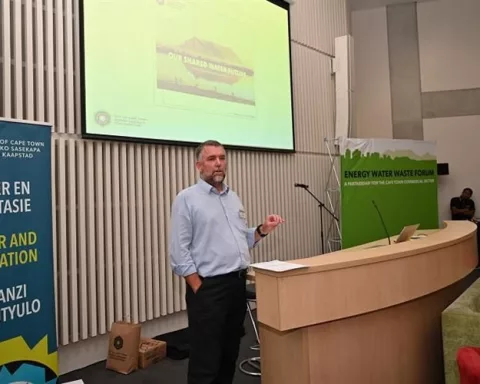Cape Town is building a new stormwater system on Japhta K Masemola Road to improve road safety and prevent flooding caused by the existing drainage system being blocked. The infrastructure project is part of the city’s commitment to sustainable development and aims to enhance the quality of life for all residents. The Road Infrastructure Management team is working to ensure the project’s successful completion, and motorists are advised to seek alternative routes during the construction period. This initiative showcases the City of Cape Town’s dedication to progress and safety, providing a model for other cities worldwide.
What is the infrastructure project in Cape Town?
Cape Town is undertaking a major infrastructure project to equip Japhta K Masemola Road with a new stormwater system. This initiative was launched in response to repeated flooding caused by the blockage of the existing stormwater drainage system. The aim is to improve road safety and the quality of life for all residents.
Cape Town, a bustling city on South Africa’s southwestern coast, has embarked on a substantial infrastructure project. The lively artery of Japhta K Masemola Road is being equipped with a new stormwater system. Initiated under the bright sun, the work is scheduled to proceed between the hours of 8 am and 4:30 pm, five days a week, provided no unexpected hiccups arise. The goal is to wrap up the project by Tuesday, September 17.
Addressing a Crucial Problem
This major initiative was launched in response to a pressing issue – the blockage of the existing stormwater drainage system. The creation of the Island Informal Settlement has led to this obstruction, resulting in repeated flooding at the lowest point of Japhta K Masemola Road during periods of rainfall. This predicament poses a severe risk to the safety of travellers, local residents, and businesses.
A Testament to Sustainable Development
The project is at the heart of a strategy aimed at boosting urban innovation to improve the life and safety of Cape Town’s road network. The city, famed for its stunning natural beauty and rich cultural heritage, is also strongly committed to sustainable development. The new stormwater infrastructure stands as a testament to this commitment. It is projected to drastically reduce the risk of flooding on Japhta K Masemola Road, thereby improving the longevity and quality of the city’s roadways.
Cape Town’s Infrastructure Management’s Role
As this undertaking progresses, the Road Infrastructure Management team of Cape Town, under the city’s Mayoral Committee Member for Urban Mobility, Rob Quintas, is striving to ensure its flawless execution. Quintas has appealed to the city’s inhabitants for their cooperation and support for the project’s successful completion. He has acknowledged the favourable weather conditions, which have helped the team bring this project closer to completion, thereby significantly reducing the area’s flooding risk.
Enhancing Road Safety
Further, Quintas has highlighted how the newly installed structure will augment road safety by reducing the risk of roads deteriorating due to standing water and continuous flooding. This monumental move will ensure safer and improved driving conditions, thereby contributing to Cape Town’s overall growth and development.
As construction continues, the city council advises drivers to seek alternative routes when possible, to maintain their safety and smooth traffic flow. Motorists are urged to be aware of the ongoing construction, to slow down and adhere to traffic signs. This sincere effort of the City of Cape Town to balance urban development with the safety and welfare of its residents is admirable.
The City’s Dedication to its Citizens
This undertaking is an exemplification of the City of Cape Town’s commitment to its citizens, ensuring a safer and more dependable commute. By tackling critical infrastructure problems directly, the city underscores its commitment to enhancing the quality of life for all its residents. This further strengthens the city’s determination to align urbanisation with the sustainability and safety of its roadways.
A Powerful Narrative of Progress
In conclusion, the stormwater infrastructure development programme on Japhta K Masemola Road is a compelling illustration of progress and dedication. It narrates the story of a city committed to growth while ensuring the safety and welfare of its people. This tale provides a model for other cities globally, highlighting the importance of infrastructure development in crafting resilient and sustainable urban landscapes.
- What is the infrastructure project in Cape Town?
-
Cape Town is undertaking a major infrastructure project to equip Japhta K Masemola Road with a new stormwater system. This initiative was launched in response to repeated flooding caused by the blockage of the existing stormwater drainage system. The aim is to improve road safety and the quality of life for all residents.
-
Why was the infrastructure project initiated?
-
The project was initiated in response to a pressing issue – the blockage of the existing stormwater drainage system which has resulted in repeated flooding at the lowest point of Japhta K Masemola Road during periods of rainfall. This poses a severe risk to the safety of travellers, local residents, and businesses.
-
What is the city’s commitment to sustainable development?
-
The city is strongly committed to sustainable development and the new stormwater infrastructure stands as a testament to this commitment. It is projected to drastically reduce the risk of flooding on Japhta K Masemola Road, thereby improving the longevity and quality of the city’s roadways.
-
What is the role of the Road Infrastructure Management team?
-
The Road Infrastructure Management team of Cape Town, under the city’s Mayoral Committee Member for Urban Mobility, Rob Quintas, is striving to ensure the project’s flawless execution. He has appealed to the city’s inhabitants for their cooperation and support for the project’s successful completion.
-
How will the new infrastructure enhance road safety?
-
The newly installed structure will augment road safety by reducing the risk of roads deteriorating due to standing water and continuous flooding, ensuring safer and improved driving conditions.
-
What is the significance of the project for the city and its citizens?
- This undertaking is an exemplification of the City of Cape Town’s commitment to its citizens, ensuring a safer and more dependable commute. By tackling critical infrastructure problems directly, the city underscores its commitment to enhancing the quality of life for all its residents.












